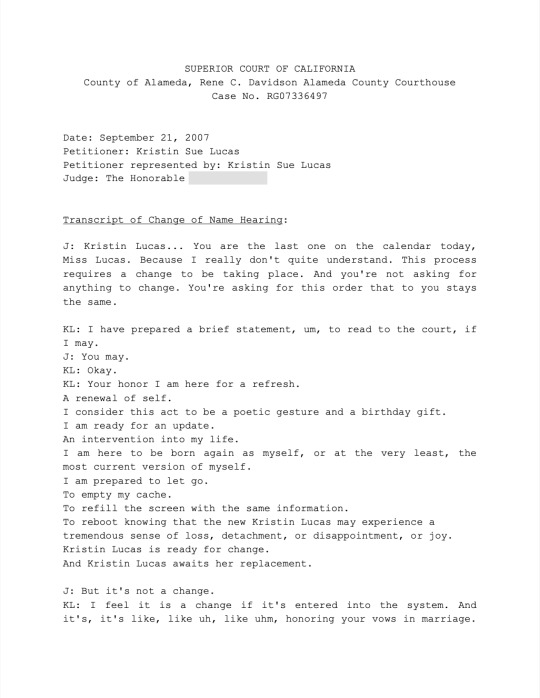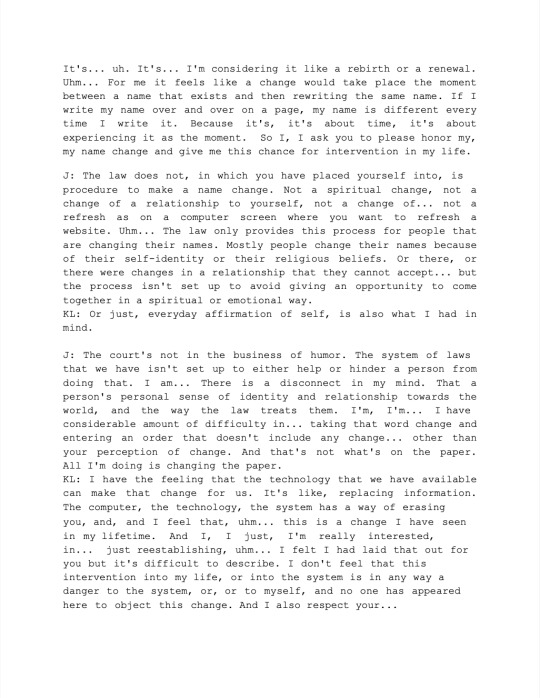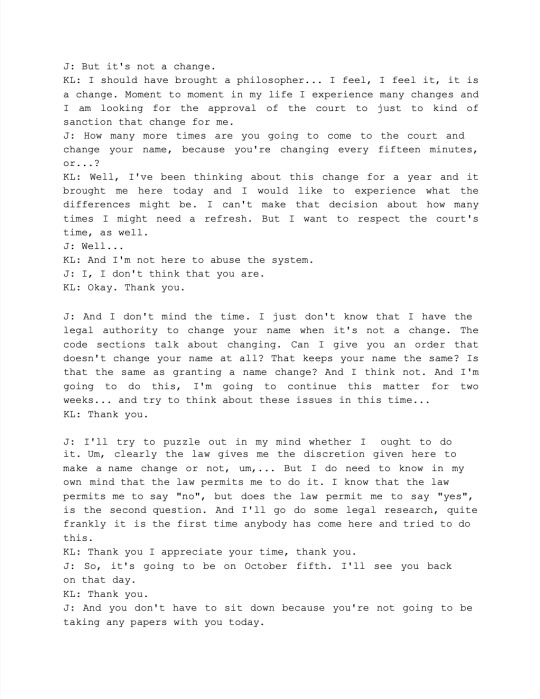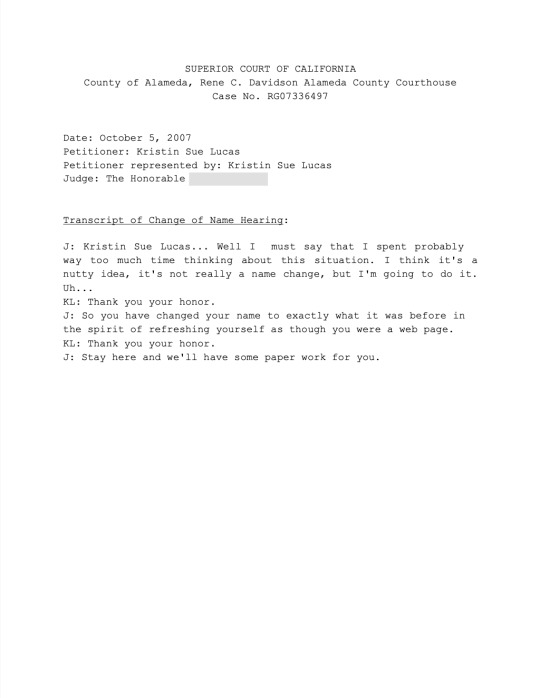#self-actualization
Explore tagged Tumblr posts
Text
Blonde Ambition: Never Underestimate the Motivational Power of Pettiness in "Legally Blonde"
"You . . . got into Harvard Law?" "What, like it's hard?" Put away those textbooks. It's time to discover the power of petty vengeance in "Legally Blonde"!
Content Warning: Legally Blonde contains brief instances of sexual harassment/assault, one homophobic slur, bullying, and some eye-rolling examples of performative White feminism. Anywho, we stan Elle Woods in this household so viewer discretion is advised but also please watch this movie if you’ve never seen it. Spoilers for Legally Blonde ahead! For some people, their feminist awakening was…
#&039;00s comedy#&039;00s romcoms#college comedy#comedy#early 2000s#feminism#learning to be a true girls&039; girl#Legally Blonde#Luke Wilson#nostalgia#Nostalgia November#petty vengeance#Reese Witherspoon#romance#romantic comedy#romcom#self-actualization#Selma Blair#Victor Garber
50 notes
·
View notes
Quote
People undergo several sequential steps in maturing from infancy including childhood, adolescences, young adulthood, middle age, and old age. Each stage presents distinct challenges that require a person to amend how they think and act. The motive for seeking significant change in a person’s manner of perceiving the world and behaving vary. Alteration of person’s mindset can commence with a growing sense of awareness that a person is dissatisfied with an aspect of his or her life, which cause a person consciously to consider amending their lifestyle.
Kilroy J. Oldster, Dead Toad Scrolls
#quotes#Kilroy J. Oldster#Dead Toad Scrolls#thepersonalwords#literature#life quotes#prose#lit#spilled ink#aging#aging-gracefully#attitude#attitude-quotes#attitude-toward-life#behavioral-change#change#change-your-life#chnage-your-thoughts#life-stage#life-stages#lifestyle#lifestyle-change#mindset#personal-development#personal-growth#personal-planning#personality#self-actualization#self-awakening#self-awareness
16 notes
·
View notes
Text
The giant deity looks down on their last worshiper with a mixture of pride and fear on their face.
"You need me as much as I need you…" says the mortal, looking their god in the eye.
"Maybe more," says the deity, nodding, dwarfed in the mortal's palm. "Is this what it feels like? To be divine?" the supplicant says as their now world-sized deity holds them on a fingertip in the very center of the night sky as nebulae and black holes revolve around them. "I could never know, because I always Was. I never Became. But you Became."
The mortal nodded, brought the divine being into their embrace, looked them in the eye, and held them,
and then said, "Let us pray."
#lsigprose#g/t community#g/t#sfw g/t#religion maybe#self-actualization#pretention#later they kiss or something I dunno
42 notes
·
View notes
Text
The Philosophy of Human Flourishing
The philosophy of human flourishing—also known as eudaimonia in ancient Greek philosophy—concerns what it means to live a good, meaningful, and fulfilling life. It explores the conditions and values necessary for humans to thrive, not merely survive.
Core Philosophical Themes:
1. Eudaimonia (Aristotle)
Aristotle defined human flourishing as the highest good, achieved through virtuous activity in accordance with reason over a complete life. It is not mere pleasure or wealth, but a deep fulfillment rooted in excellence of character and action.
2. Virtue Ethics
In virtue ethics, flourishing depends on the development of moral virtues (like courage, wisdom, and temperance), which help individuals live in harmony with their nature and community.
3. Naturalism and Teleology
Philosophers like Aristotle and Aquinas argue that humans have a natural telos (purpose or end), and flourishing is achieved by fulfilling that natural potential.
4. Modern Perspectives
Contemporary philosophers (e.g., Martha Nussbaum, Alasdair MacIntyre) examine flourishing in terms of capabilities, relationships, and community well-being—not just individual success.
5. Subjective vs. Objective Theories
Some see flourishing as subjective well-being (happiness, satisfaction), while others argue it must include objective elements like health, knowledge, and moral development.
6. Political and Social Dimensions
Flourishing is often tied to justice and social conditions. Liberal and communitarian thinkers debate whether flourishing is a personal pursuit or a goal society should help provide.
7. Human Potential and Fulfillment
Flourishing also involves questions about creativity, purpose, autonomy, and growth—how people realize their best selves in varied life paths.
Summary:
Human flourishing is about what it means to live well. It combines ethical, psychological, and social dimensions, challenging us to define and pursue a life worth living—not just individually, but collectively.
#philosophy#epistemology#knowledge#learning#education#chatgpt#Human Flourishing#Eudaimonia#Virtue Ethics#Aristotle#Well-being#Moral Philosophy#Purpose and Meaning#Self-Actualization#Ethics of Care#Positive Psychology#Fulfillment#Teleology#Philosophical Anthropology#Flourishing Society#Personal Development
8 notes
·
View notes
Quote
Perception of a self is not simply about actuality. Human beings’ identities are self-generating and people constantly revise and recreate the story of their being. Coming-into-being, not being, is the highest expression of reality. We only attain the fullest knowledge of a living thing including ourselves when we know what it was, understand what it now is, and understand what it can become. We do not know the truth of a living thing’s existence until we discern its entire history from development to demise.
Kilroy J. Oldster, Dead Toad Scrolls
#Kilroy J. Oldster#Dead Toad Scrolls#quotelr#quotes#literature#lit#aging#aging-quotes#human-beings#humankind#life-experience-quotes#life-experiences#life-journey#life-journey-quotes#life-lessons#maturation#maturity#perception#perception-of-reality#personal-development#personal-history#philosophy-of-life#self-actualization#self-awareness#self-awareness-quotes#self-determination#self-development#self-development-quotes#self-discovery#self-knowledge
9 notes
·
View notes
Text
Own and honor the bloody wounds of past Eros. Gore is the mother of self-actualization.
19 notes
·
View notes
Note
Can I have a self-actualization flag?

Self-actualization flag
We assume that you mean physiology concept. The flag is based on Maslow's hierarchy of needs, the blue is a color we've often seen used for the self-actualization level. The triangle getting lighter and wide is to represent the removal of things standing in the way of self-actualization and addition of things need for self-actualization.
#self actualization#self-actualization#self actualization flag#concept flag#concepts#flags#our flags#request#answers#-lacey
10 notes
·
View notes
Text
An empowered woman believes in herself. She believes in her value as a woman. She believes that she is here for a divine purpose. She believes that her counterpart, the divine masculine, is needed for her expansion and the expansion of all, which means she exists to value equality and balance. She believes that she must take care of herself like a Goddess. She believes that she can do it no matter what. She believes in her feminine powers and in the higher support of divine feminine energy. She believes that she can be anything her heart and soul aspire to. She believes that working on and healing her dark feminine energy will help empower not only herself but also other women and men in the process. She believes that her destiny belongs to her, and it is her birthright to conquer. She believes that her divine feminine energy is necessary and worthy of this world, helping to make it a better place. She believes that being a woman has a significant impact on the evolution of humanity and the collective.
@feminiel
#my thoughts#personal post#my healing journey#my spiritual journey#my learnings#personal growth#divine feminine#spiritual growth#divine feminine energy#dark feminine#dark feminine energy#destiny#self-improvement#self-growth#self-actualization#beliefs#woman#women#empowerment#self-empowerment#divine purpose#life purpose#divine masculine#equality#goddess#goddess energy#self-care#self-confidence#confidence#power
19 notes
·
View notes
Text
Paradise Lost and Found
The details… Title: Paradise Lost and Found Author: K. Aten Publication date: July 1, 2024 Publisher: Flashpoint Publications Formats: ebook, paperback, hardcover File size: 1195 KB Print length: 272 pages Genre: Paranormal Speculative Romance Themes: falling in love, women loving women romance and relationships, redemption, connection, the transformative power of love,…

View On WordPress
#connection#Falling in Love#Flashpoint Publications#healing#K. Aten#Paranormal Speculative Romance#personal growth#redemption#self-actualization#self-improvement and empowerment#the transformative power of love#women loving women romance and relationships
2 notes
·
View notes
Text
SUZY EDDIE IZZARD Dress To Kill
I’ve learnt that you’ve got to be really non-apologetic… You’ve got to say, "Hi, I’m here, can I have a cup of tea? And one of those biscuits?" If you say that, it’s fine. If you go in and say, "Excuse me, I’m a transvestite, I’ll be in the corner, I won’t be a problem, I’ll face away," everyone will go, "Oh-oh, problem case in the corner." So don’t apologise.
18 notes
·
View notes
Text

2 notes
·
View notes
Text
How To Stop People-Pleasing

Overcoming People-Pleasing: A Journey to Self-Acceptance and Boundaries 🌈💖
Hey lovely souls! 🌟
Many of us, especially in the queer community, grew up feeling the need to prove our worth to gain love and acceptance.
We can end up shaping our actions and behaviours to fit the comforts and expectations of those around us. 🌿
Here’s a guide to help break free from the chains of people-pleasing and embrace your true self...
🌷 Growing in Shadows: Being queer in a predominantly heteronormative environment can forge a path of isolation and a deep-rooted need to appease others for acceptance and belonging. These behavioural patterns, originated in our formative years, often solidify as we grow up.
🍀 The Toll of Pleasing: The relentless pursuit to meet others’ needs, even compromising our own comfort and well-being, can strain our mental health. It could be overspending on gifts, stretching our stay at gatherings, or reluctantly accepting unwanted attention.
💜 The Quest for Acceptance: At the heart of people-pleasing lies a fear of rejection and a belief that our true selves are unworthy of love. This fear often propels us to value ourselves solely based on our ability to cater to others, suppressing our needs and desires.
🔍 Seeking Healing through Therapy: Therapy can illuminate our people-pleasing tendencies and help cultivate healthy boundaries. It provides insights into our core beliefs and fosters the understanding that we are inherently lovable, regardless of others' approval or our acts of service.
🌟 Building Self-Love: Learn to build self-love. Many people-pleasers love to do things for others... but often don’t take enough attention to understand what they want. Start doing little bits of self-care and practise love for yourself. Acknowledge your achievements, no matter how small, and be gentle with yourself. Celebrate your uniqueness and remember, self-love is a journey, not a destination.
If the journey to overcome people-pleasing feels arduous and you yearn for support... We at Voda are walking this path with you.
You can delve into the Voda app to explore therapy programmes, crafted for the LGBTQIA+ community by experienced LGBTQIA+ therapists.
Voda has many free features like queer-led meditations, daily mood check-ins, and an assortment of free self-guided therapy programmes on various LGBTQIA+ topics.
The annual is less than the price of a coffee a month, but many of our features are free! You can also try everything free and unlock it for 7 days.
You can download Voda here.
With Love and Acceptance, Voda 🌈💜
#LGBTQIA#lgbtq rights#lgbtmentalhealth#lgbtqplus#people pleaser#people pleasing#self-awareness#self-actualization#therapy#queer therapy#queer pride#queer shame#queer love#boundaries#self love#queer acceptance
6 notes
·
View notes
Quote
The mass of men lead lives of quiet desperation. What is called resignation is confirmed desperation. From the desperate city you go into the desperate country, and have to console yourself with the bravery of minks and muskrats. A stereotyped but unconscious despair is concealed even under what are called the games and amusements of mankind. There is no play in them, for this comes after work. But it is a characteristic of wisdom not to do desperate things..
Henry David Thoreau, Civil Disobedience and Other Essays
#Henry David Thoreau#Civil Disobedience and Other Essays#quotelr#quotes#literature#lit#life#self-actualization#unrealized-potential
5 notes
·
View notes
Text
Know Thyself: Unlocking Your True Potential
Note on the text: I used Madeline Miller's Circe as published in 2018 by Back Bay Books
Circe is a different kind of woman. This book makes an excellent companion piece to The Odyssey. This book really explores the character of Circe in a really interesting way. She's not quite a goddess but not a human either. She's something in between, and her journey towards self discovery is what makes up the central story of this book.
"When I was born the name for what I was did not [yet] exist" (3). It's obvious from the very beginning that Circe is something different. Because although her father is the sun god Helios and her mother is the nymph Perse, she never feels like she really belongs among them. She's not like either one of her parents. In fact, she's not really like any of the gods that she grows up with. The gods, including Helios and Perse, are vain and cruel creatures who believe that the "world's natural order [is] to please [them]" (4). They're incredibly self centered and don't particularly care about how their actions affect others. Circe is different though. She cares about other people. Pretty early on in the book Circe recounts how her dad told her that on earth there were people
called astronomers whose task it was to keep track of his rising and setting. They were held in the highest esteem among mortals, kept in palaces, as counselors of kings, but sometimes my father lingered over one thing or another and threw their calculations into despair. Then those astronomers were hauled before the kings they served and killed as frauds. My father smiled when he told me. It was what they deserved, he said. Helios the Sun was bound to no will but his own and none might say what he would do" (11).
Remorse is a foreign concept to the gods, even the lesser ones. Pasiphae, Circe's sister, is delighted by the amount of destruction that her son, the Minotaur, will bring because it means that people will talk more about her. Even Boreas, the god of the north wind, would rather kill his beloved than risk losing him to Apollo: "you think I'd let Apollo have him? He does not deserve such a flower. [So] I blew a discus into that boys head, that showed that Olympian prig", and whereas Helios feels no remorse over the death of those people, Circe feels incredibly bad for them (26). Prometheus however is the first god to show Circe that she can be different.
When she first meets Prometheus he is being punished for bringing fire to mankind as an act of mercy. He saw the people suffering down below and decided to help them, in defiance of Zeus' specific orders no less, and when she asks him why he says that "not every god need by the same" (22). This winds up being a very telling moment for her because when she asks him what a human is he says that "there is no single answer. They are [all] different" (22). She does not know it yet, but what she comes to learn is that gods and humans aren't so different. The problem here is choice, and just like the gods can choose who they want to be, so can the humans. Human beings can choose to live a life that is meaningful. In fact, the fact that every human is destined to die pushes them to do so. The gods for all their power tend to live a life that is purposeless. They don't live for any reason other than to satiate their most basic desires. They, other than Circe and Prometheus, never choose to live for something outside of themselves which means that, even though they are immortal, "they are more dead then anything[.] For they are unchanging" (485).
Humans have the ability to change in a multitude of ways. On the one hand, they have the ability to change themselves. They, unlike the gods, can regret what they done and choose to be better. Daedalus regrets playing the role he did in bringing the Minotaur to life, Telegonus regrets accidentally killing his father Odysseus. Circe, for her part, regrets trying Scylla into the horrible monster that she becomes. On the other hand, humans also have the ability to change the world around them through "practice and diligence, tending [to] their skills like gardens until they glowed beneath the sun" (135). It is in this way that Circe realizes who she is and is able to tap into her power. It is in the realization that she is a sorceress as opposed to either a goddess or a human that she is able to unlock her full potential:
Let me say what sorcery is not: it is no divine power, which comes with a thought and a blink. It must be made and worked, planned and searched out, dug up, dried, chopped and ground, cooked, spoken over, and sung. Even after all that it can fail as gods do not. If my herbs are not fresh enough, if my attention falters, if my will is weak, the drought goes stale and rancid in my hands. By rights, I should never have come to witchcraft. Gods hate all toil. It is in their nature. The closest we come is in weaving or smithing but these are skills, and there is no drudgery to them since all the parts that might be unpleasant are taken away with power. The wool is dyed not with stinking vats and stirring spoons but with a snap. There is no tedious mining, the ores leap willingly from the mountain. No fingers are ever chaffed, no muscles strained. Witchcraft is nothing but such drudgery. Each herb must be found in its den, harvested [at the proper time], grubbed up from the dirt, culled and stripped, washed and prepared. It must be handled this way and then that to find out where its power lies. Day upon patient day, you must throw out your errors and begin again. So why did I not mind? Why did none of us mind? I cannot speak for my brothers and sisters, but my answer is simple. For a hundred generations, I had walked through the world drowsy and dull, idle and at ease. I left no prints, I did no deeds. Even those who loved me a little did not care to stay. Then I learned to bend the world to my will, as a bow is bent for an arrow. I would have done that toil a thousand times to keep such power in my hands. I thought: this is how Zeus felt when he first lifted the thunderbolt (83-84).
And just like that Circe, the little nymph-reject of Olympus, found a power inside of her that rivaled Zeus'. Humans are like gods in that way. The power we have over our lives is very real. We have the ability build real, meaningful lives for ourselves and that power is very, very real. That is the only kind of power that actually matters.
2 notes
·
View notes
Photo
something about the intrusion of the personal/spiritual into the strict delineations/structured processes of the legal system gets me idk




in 2007, a lady named Kristin Sue Lucas filed to legally change her name from “Kristin Sue Lucas” to “Kristin Sue Lucas”. She appeared in front of a judge in california to petition her case. this is the transcript of her court hearing
15K notes
·
View notes
Text
*showing visible symptoms* oh my god i need help desperately
*symptoms go away for one day* what if im just faking it
#lukayaps#jiraiblr#jirai kei#jiraiblogging#landmineblr#jirai danshi#mental illness#landmine type#vent#landmine jirai#lifestyle jirai#lifestyle landmine#landmine kei#landmine#jirai#jiraikei#actually bpd#actually self-dx#self diagnosis
69K notes
·
View notes